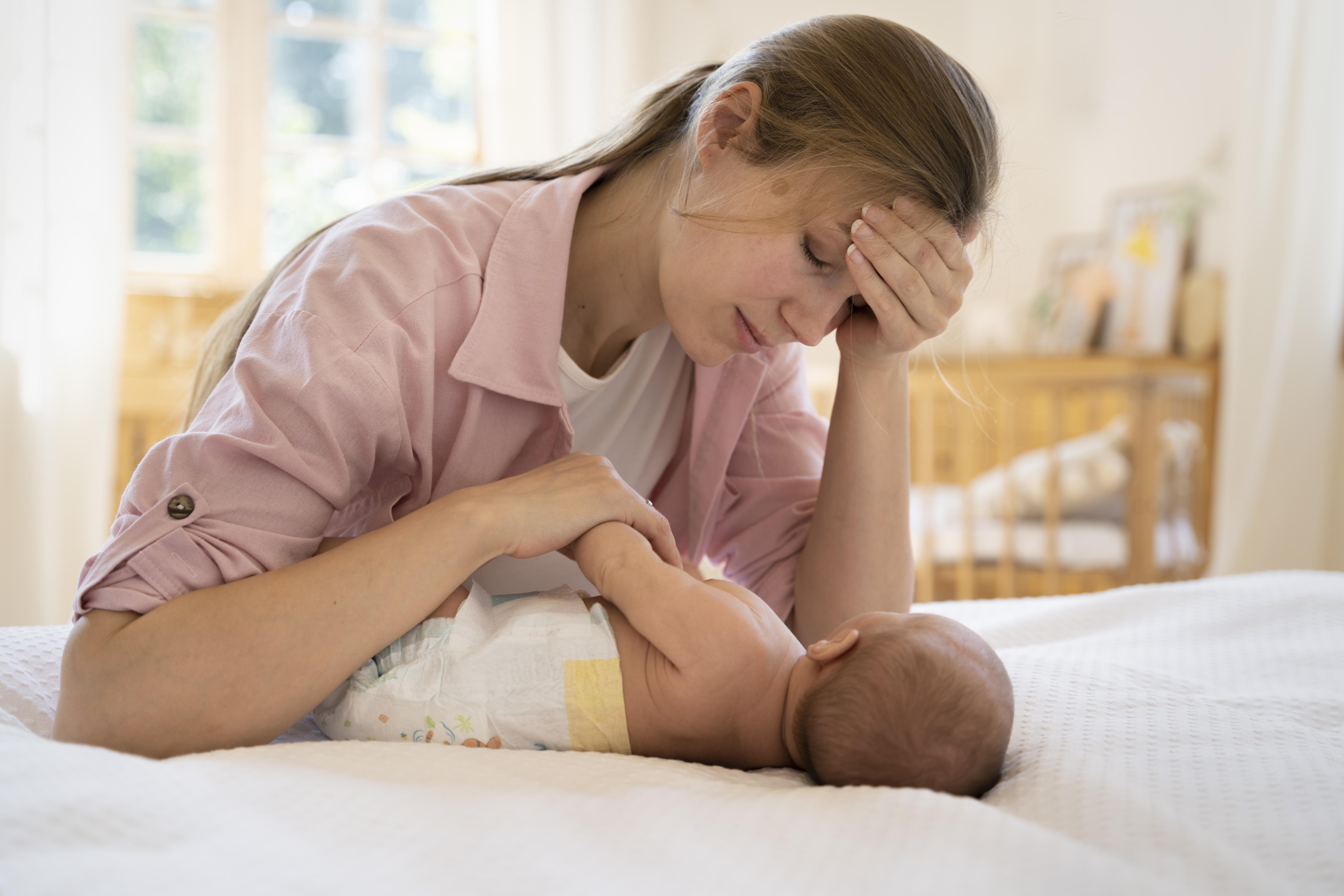The Hidden Battle After Birth: A Guide to PPD Awareness & Care

By Ghosia Ahmed, Mental Health Advocate and Psychology Writer
“You are not a bad mother. You just need some mothering.”
These words hold power.
Because every year, millions of women silently suffer after childbirth—doubting their worth, feeling disconnected, overwhelmed, or simply… numb. What they’re experiencing isn’t just exhaustion or “baby blues.” It’s something deeper. It’s Postpartum Depression (PPD)—and it’s far more common, and dangerous, than we often admit.
A Silent Epidemic
The soft cries of a newborn are often met with coos and lullabies. But sometimes, they echo in the hollow silence of a mother too exhausted to smile, too overwhelmed to bond, or too ashamed to ask for help.
Globally, studies reveal that 1 in 7 women experience PPD after giving birth (Woody et al., 2017, Journal of Affective Disorders). That’s millions of mothers each year, often suffering in silence.
And the most chilling reality? Maternal suicide is one of the leading causes of death in the first year after childbirth. According to the MBRRACE-UK 2023 report, suicide accounted for 39% of maternal deaths between 6 weeks to 12 months postpartum.
This isn’t just emotional distress—it’s a public health crisis. And it’s time we started talking about it.
Why Does It Happen?
Becoming a mother is transformational—but also physically, emotionally, and socially demanding. PPD doesn’t discriminate. It can affect first-time moms, experienced mothers, even adoptive parents.
Some of the most common causes include:
- A sudden drop in estrogen and progesterone post-delivery
- Sleep deprivation that builds into emotional burnout
- A personal or family history of depression or anxiety
- Complicated childbirth or traumatic medical interventions
- Lack of support from partner, family, or society
- Pressure to be the “perfect mom,” especially in the age of social media
- Financial stress, breastfeeding issues, or dealing with an ill baby
Even moms who “have it all together” on the outside may be breaking down inside.
It’s Not Just Sadness: How to Recognize PPD
PPD doesn’t always look like crying in a dark room. Sometimes, it looks like smiling at visitors while secretly feeling numb. Or feeling guilty for not feeling “grateful enough.”
Some common signs include:
- Deep sadness, frequent crying, or emotional emptiness
- Feeling detached from your baby or unable to bond
- Constant irritability or anxiety, even over small things
- Changes in appetite or sleep (too much or too little)
- Loss of interest in things once enjoyed
- Intense feelings of worthlessness, shame, or guilt
- In severe cases, thoughts of harming oneself or the baby
If these feelings last more than two weeks or start to interfere with daily life, it’s more than baby blues—it’s time to seek help.
There is Help. And There is Hope.
The good news? PPD is highly treatable. With the right care, most women recover fully and go on to thrive in motherhood.
Here’s what that care can look like:
Therapy
- Cognitive Behavioral Therapy (CBT) helps identify and reframe negative thoughts.
- Interpersonal Therapy (IPT) focuses on relationship challenges and role transitions.
Medication
- Antidepressants, especially SSRIs, are often prescribed. Many are safe for breastfeeding mothers—but always consult with a healthcare provider.
Support Systems
- Having someone to talk to—a partner, friend, therapist—can make a world of difference.
- Peer support groups, both in-person and online, offer comfort in shared experiences.
Lifestyle Changes
- Sleep when possible, nourish your body, and move gently (walks, stretching).
- Ask for help—caring for yourself is part of caring for your baby.
Tech to the Rescue
In today’s digital age, help is just a click away. Apps like Trusme connect women to licensed therapists through telehealth—providing confidential, personalized mental health support from home. It’s a lifeline for mothers who can’t leave the house, or don’t know where to start.
It’s Okay to Ask for Help
Let’s be honest—motherhood is hard. Beautiful, yes. But hard. And in the haze of feedings, diapers, and pressure to be perfect, many women lose themselves.
But no one should suffer in silence.
If you’re reading this and recognizing yourself in these words, please know: you are not alone. You are not failing. And you deserve care too.
Let’s break the silence around postpartum depression. Let’s listen more, judge less, and support every mother like she’s just as important as the child she gave birth to.
Download the Trusme App to connect with licensed therapists and get the support you deserve.
Explore More Mental Health Resources on our Blogs Page.